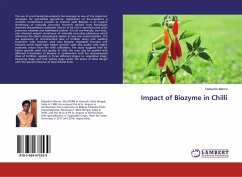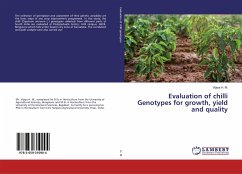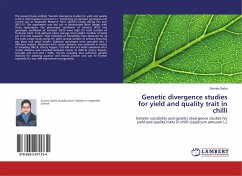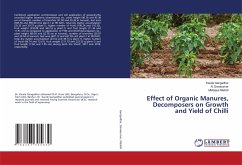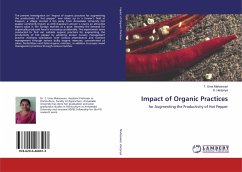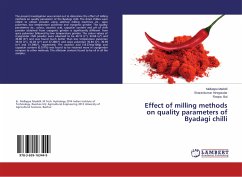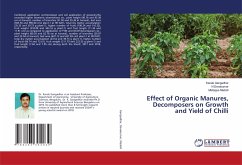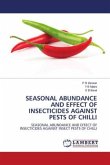The use of eco-friendly bio-products has emerged as one of the important strategies for sustainable agriculture. Application of bio-regulators is common horticultural practice to improve yield Biozyme is an organic storehouse of naturally occurring nutrients derived from Norwegian seaweed (Ascophyllum nodosum), known to be rich in cytokinins and auxin precursor, enzymes and hydrolyzed protein. It is an eco-friendly, non-toxic, non chemical organic storehouse of naturally occurring substances which influences the plants physiological system at very low concentrations. The soil application of recommended dose of fertilizer along with seedling treatment with biozyme seed plus, biozyme Vegetable Granules and biozyme mirchi liquid gave higher growth, yield and quality with higher economic return from the chilli cultivation. The study suggests that for better growth, yield and quality of chilli, the crop may be applied with different formulation of Biozyme in combination with the recommended dose of fertilizer, applied in three different stages i.e. vegetative stage, flowering stage and fruit setting stage under the plains of West Bengal with the special reference of New Alluvial Zone.
Bitte wählen Sie Ihr Anliegen aus.
Rechnungen
Retourenschein anfordern
Bestellstatus
Storno

